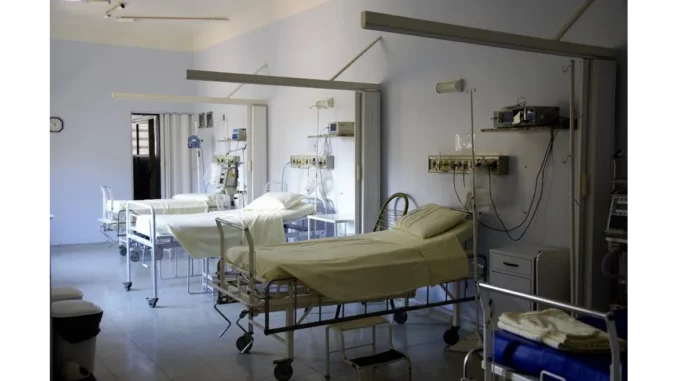
In an era marked by an unprecedented surge in the demand for healthcare professionals, India finds itself at a pivotal juncture. The healthcare sector is burgeoning, yet the country faces a significant shortfall in healthcare management professionals, particularly those with MBA qualifications tailored to this critical field. To delve into the complexities of this issue, I engaged in a discussion with Anjali Verma, a distinguished academic and administrator at the All India Management Association (AIMA). Anjali has been instrumental in integrating technological advancements and global educational insights into India’s management education framework.
Seated in her modest yet meticulously organised office, Anjali radiated confidence and clarity. Her position at AIMA uniquely situates her at the confluence of education, industry, and innovation. “India’s healthcare sector is expanding at an incredible rate,” she commenced, “yet the educational infrastructure required to support this growth, particularly in management, has not evolved correspondingly.”
Anjali elaborated on the progressive steps AIMA has undertaken to address the swiftly transforming landscape of management education. “AIMA has consistently embraced technological progress and incorporated it into our educational offerings,” she explained. “We collaborate with technology-driven companies, IITs, and globally esteemed business schools to provide cutting-edge insights into emerging management domains.”
Our dialogue naturally transitioned into the specific initiatives AIMA is implementing to render management education more comprehensive and future-oriented. “We maintain a broad focus,” Anjali remarked. “Beyond traditional management teachings, we are incorporating AI, energy transitions, and ESG principles into our curricula to ensure our students are well-prepared to tackle future challenges.”
The conversation then steered towards the core issue at hand—healthcare management. “Although healthcare is a flourishing sector, the availability of healthcare MBA programmes remains insufficient,” Anjali noted. “This gap is a focal point for AIMA, and we are actively striving to remedy it.” She highlighted how healthcare management has evolved into a multifaceted field, influenced by technological advancements and globalisation. “Healthcare management encompasses more than hospital operations; it involves strategic decision-making, resource allocation, and upholding high standards of patient care, all of which necessitate a specialised educational approach.”
To bridge this gap, AIMA is capitalising on its extensive network and forging strategic alliances. “We are engaging with MSMEs and startups, encouraging the adoption of contemporary business technologies and management practices,” Anjali continued. “Our objective is to develop a robust cadre of healthcare management professionals capable of navigating these complexities adeptly.” Her passion for integrating technology into education was palpable. “We’ve designed programmes accessible through hybrid and online learning models, which not only widen access but also ensure that future leaders are equipped with the skills needed for success in a technology-driven world.”
Despite these commendable efforts, challenges remain. The necessity for additional healthcare-focused MBA programmes is acute, and educational institutions must rise to meet this demand. “We are urging business schools to actively develop and promote healthcare management courses,” Anjali asserted. “Simultaneously, there is a pressing need for healthcare enterprises to become more engaged in campus recruitment, a crucial factor in cultivating a skilled workforce.”
Anjali emphasised the importance of research and funding in this domain. “Research is the cornerstone of any academic discipline,” she insisted. “Without it, we cannot hope to provide the depth and breadth of knowledge essential for excellence in healthcare management.”
As our conversation concluded, Anjali shared her vision for the future. “I envisage a future where India’s healthcare management education not only meets global standards but sets the benchmark,” she said with conviction. “Achieving this requires collaboration, innovation, and an unwavering commitment to quality education.”
Reflecting on this dialogue, it becomes evident that while the challenge of addressing the shortage of healthcare MBAs in India is formidable, it is not insurmountable. With dedicated individuals like Anjali leading the charge and initiatives such as those undertaken by AIMA, India is poised to cultivate a new generation of healthcare management leaders, equipped to meet the demands of an evolving global landscape.


Be the first to comment